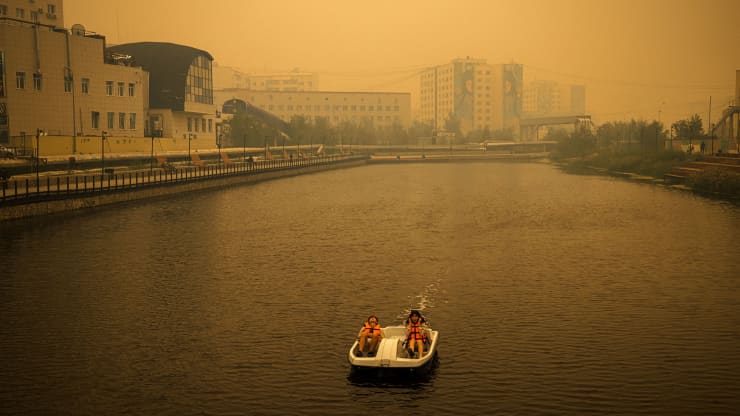
With apologies to the accusers working hard to hold their abusers to account, the impacts of human activity on global warming are taking center stage this week:
The world’s leading climate scientists on Monday delivered their starkest warning yet about the deepening climate emergency, with some of the changes already set in motion thought to be “irreversible” for centuries to come.
A highly anticipated report by the U.N.’s climate panel warns that limiting global warming to close to 1.5 degrees Celsius or even 2 degrees Celsius above pre-industrial levels “will be beyond reach” in the next two decades without immediate, rapid and large-scale reductions in greenhouse gas emissions.
To be sure, the 1.5 degrees Celsius threshold is a crucial global target because beyond this level, so-called tipping points become more likely. Tipping points refer to an irreversible change in the climate system, locking in further global heating.
At 2 degrees Celsius of global warming, the report says heat extremes would often reach critical tolerance thresholds for agriculture and health.U.N. Secretary-General, António Guterres described the report as “a code red for humanity.”
“The alarm bells are deafening, and the evidence is irrefutable: greenhouse gas emissions from fossil fuel burning and deforestation are choking our planet and putting billions of people at immediate risk,” Guterres said.
Every previous supposed estimate had been watered down to re-assure the consensus that all of this was far enough away in time not to worry about. A little tweak here or there was all that was needed, and no time soon. Well guess what? It’s no time – soon. What are we doing and how much more can we do must be the only questions. The Earth will change and re-establish some equilibrium, and humans may or may not be a part of that. We don’t seem to understand that last part, and we’re warning ourselves that we are running out of time.
Image: A couple rides a pedal boat as smoke from nearby forest fires hangs over the city of Yakutsk, in the republic of Sakha, Siberia, on July 27, 2021.
DIMITAR DILKOFF | AFP | Getty Images
